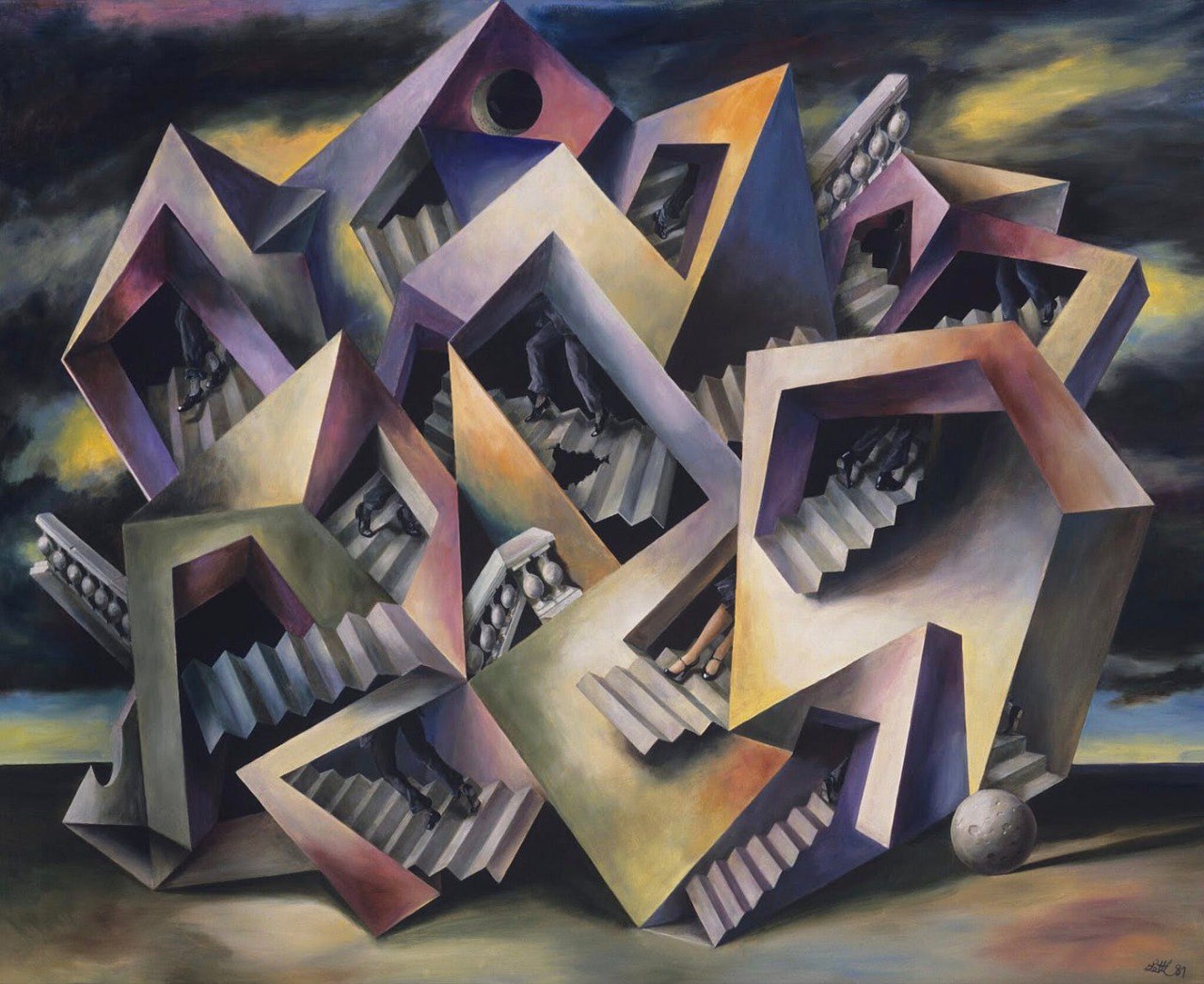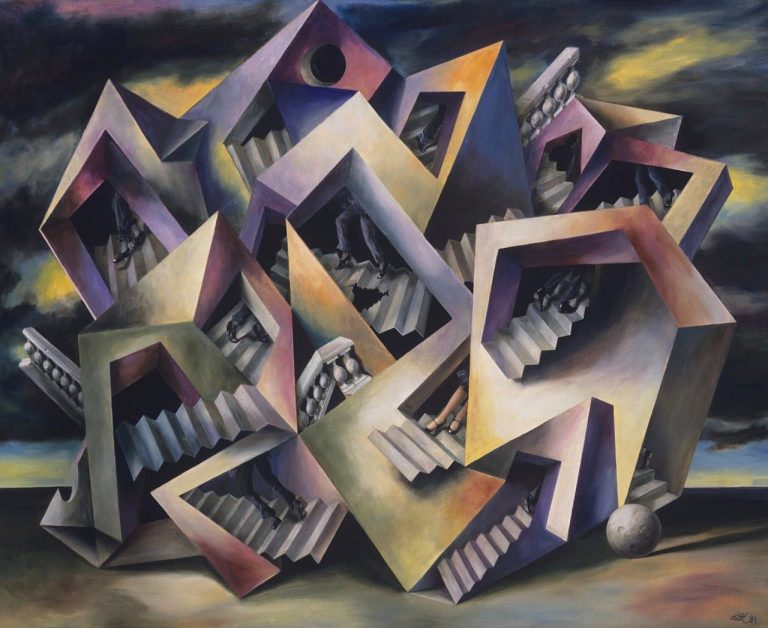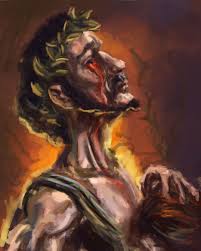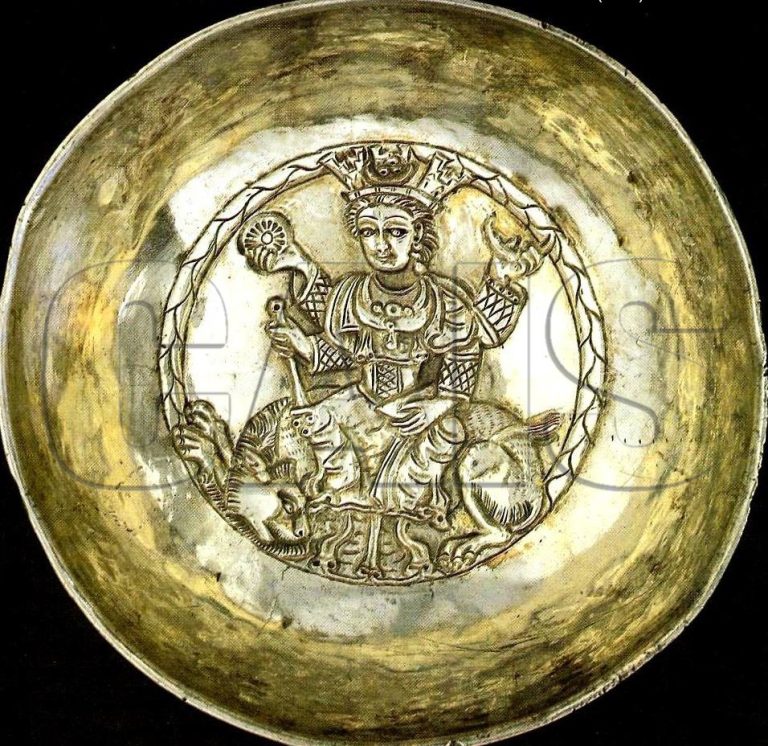“It was living like a beetle!” said J.K. Rowling in her 2010 interview with Oprah.
“Living like a beetle” is perhaps only a well-known proverb to the well-trained literary figures and contributors, which makes it logical to have been spoken by J.K. Rowling. It carries a strongly negative cultural connotation that relates it to someone like Rowling, who was figuratively downtrodden and deeply made miserable and impoverished during her ragged times. She uses it expressively, and for viewers who can’t apply it, reading Kafka’s Metamorphosis is recommended to get a grasp of what it really connotes.

True, the short story, which is arguably on a universal basis Kafka’s most famous and widely praised achievement in literature, is a surrealistic work of art, in that it is under the effects of the realm of the unconscious. However, it simultaneously corresponds with other genres as well, that is, absurdism and dark comedy.
Far from being considered a work of art shaped by an artist’s aesthetics, due to its examination of alienation, isolation, and dehumanization in a particular segment of society, The Metamorphosis bears aspects that relate to social criticism and political protest (art for society’s sake).
J.K. Rowling is an example of an author whose statements and comments are suggestive of the anecdote that portrays how a human in a capitalistic society with certain social elements ever tries to smash the lower social classes, as they’re dehumanized to the base, which can be taken to a beetle’s degree.
Kafka’s protagonist, Gregor Samsa, suffers from the same kind of society that ransacks him every day. Samsa, who is a travelling salesman, first and foremost, is less appalled by his perverse condition than by how late it has gotten for him to catch the train and get to work. Not only that, but he prays inwardly that his boss may show him mercy. Nonetheless, he is menaced by the inspector, the clerk, who happens to be a capitalist agent sent to check on his status and well-being. Of course, his replacement comes sooner rather than later, decided by the very force on which he depends—in other words, the commanding officer who has long enslaved him.
In his beetle-like state, the beetle-man is a workaholic by a deterministic decree, enslaved by a dominant power. Namely, he is more likely to receive kicks than encouragement. Such a proverb is tantamount to surrendering oneself to a totalitarian regime. To refuse it would be to condemn oneself to paralysis and starvation.
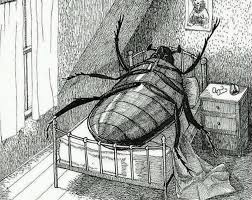
Furthermore, the Kafkaesque analogy between man and insect is the key force in reducing the former to such a state of fragility and frugality that it defies every charted “Great Chain of Being.” This evokes the absurdist notion that working men and the lower classes have been victimized by the domineering bourgeoisie to such an extent that their capacity for conscious thought has been uprooted. Such an annihilation of specialized thought prepares the ground for turning the imagination and lives of the lower classes into dark comedy—a construct that juxtaposes habitual sardonic humor with callous discriminatory violence, while also commodifying its subjects.
Gregor’s eventual demise serves as a point of return for the audience, forcing a confrontation with the estranged nature of existence and the predictable nihilism of a future governed by a dominant capitalist system— one that widens an unscrupulous and inhumane gap. However, this so-called metamorphosis has altered the Samsas’ outlook and attitude toward life so profoundly that it suggests they’d rather liberate themselves from the ruthless boundaries of the capitalist regime than be sacrificed or used as bait for its sake. Perhaps the true metamorphosis should not be seen in Gregor’s existential transformation itself, but rather in how this existential change triggers a deeper, essential metamorphosis, reflected in the rest of Gregor’s family.
This value is a transcendental one, brought forth by the Samsas’ era. Although they may have sensed that their familial values were on the verge of being lost, they no longer expressed fear or trepidation towards the unknown, having already confronted the familiar.
References:
Kafka, Franz. The Metamorphosis. Trans. by Donna Freed. Barnes & Noble Classics, 2003.
Rowling, J.K. Interview by Oprah Winfrey. The Oprah Winfrey Show, Harpo Productions, 1 Oct. 2010.
Maytham Khaghani

